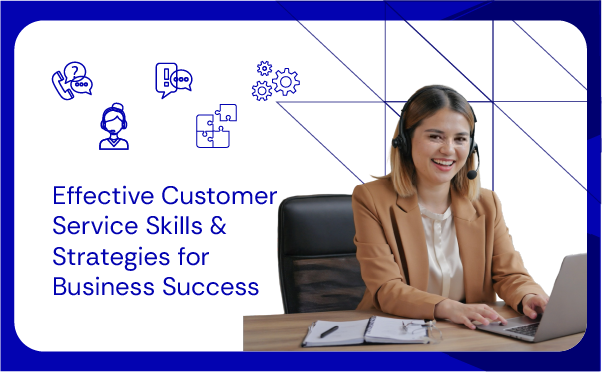Key Takeaways:
- Effective customer service means solving problems with speed, clarity, and empathy—making customers feel heard and valued.
- Core skills like active listening, communication, patience, and problem-solving are essential to building trust.
- Strategic tools like support playbooks, training, feedback loops, and knowledge bases help maintain consistency and efficiency.
- Great service comes from empowered teams who communicate with care and personalise every interaction.
What is Effective Customer Service?
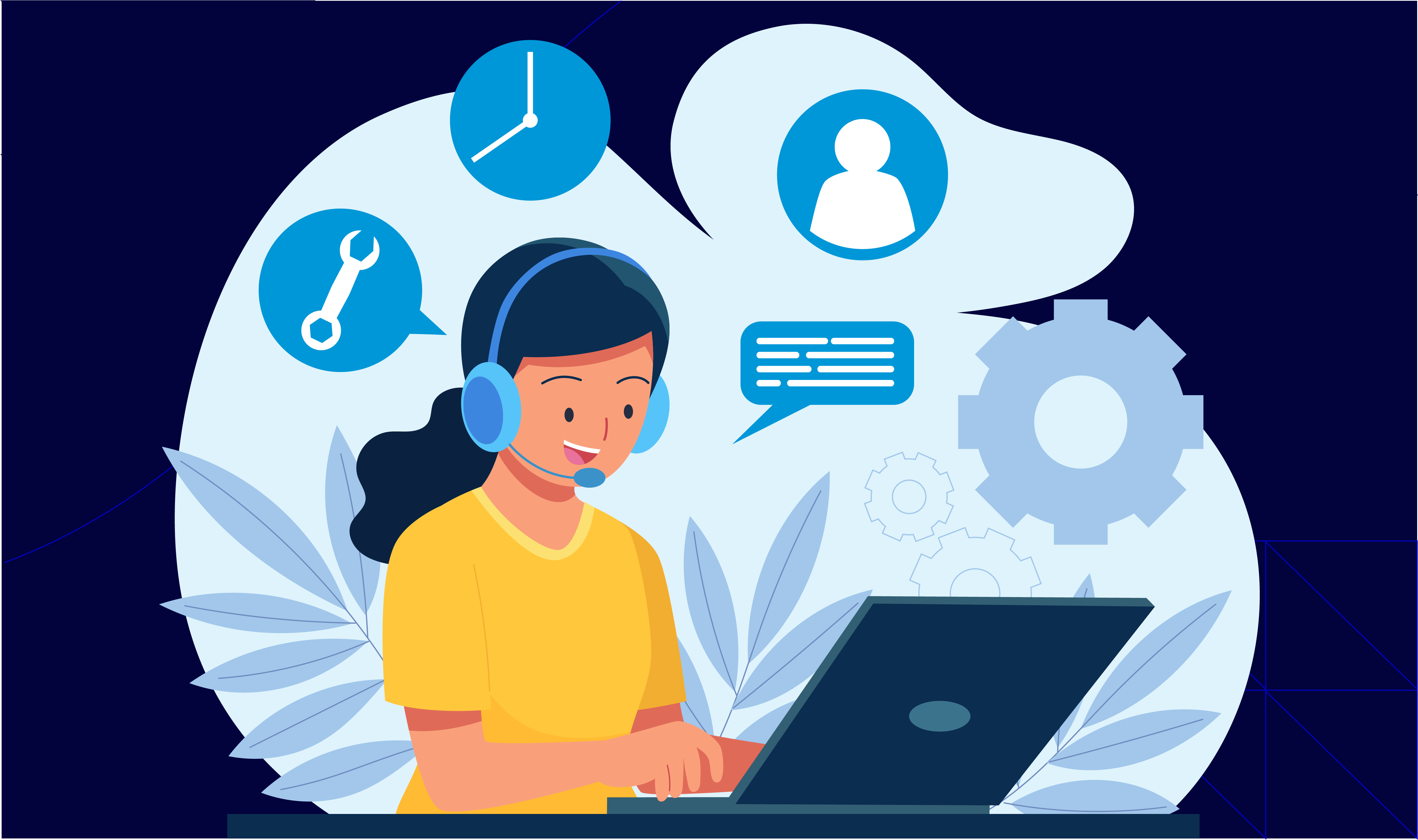
Effective customer service is all about helping people in a way that’s fast, friendly, and actually useful. It means solving the problem while also making the customer feel like they mattered while you did it.
For CX leaders in consumer and D2C brands across the U.S., U.K. & Australia, effective service is building loyalty through every touchpoint.
Imagine this:
- Someone messages about a billing issue, and they get a reply in 10 minutes with a clear explanation and a solution, plus a warm, human tone.
- Another customer can’t figure out how to use a feature, and instead of being told to “check the help doc,” they’re taken through it step by step.
That’s effective customer service. If you’re wondering how to make customer service effective, here’s the real answer:
- Be clear
- Be kind
- Be competent
- Be consistent
Studies show that 93% of customers would do repeat business with a brand that offers great customer service, so there’s a very clear business benefit to doing so.
According to recent industry studies, 93% of customers are more likely to make repeat purchases from brands that offer great service, proving that CX directly impacts revenue and retention.
Let’s dive right into the skills and strategies that you need to master in order for your business to offer effective customer service.
Must-Have Effective Customer Service Skills

Here are the foundational skills every support rep (and business owner) should master:
1. Active Listening
Before you even think about solving an issue, you need to actually hear what the customer is saying. And not just the words: listen to the tone, the frustration, the confusion, the why behind the message.
Active listening means:
- Giving your full attention
- Repeating back key details to show you’re tracking
- Asking simple clarifying questions
This matters because people want to feel heard. Even if the fix is simple, taking a beat to actively listen builds instant trust.
In one engagement, Atidiv helped a U.S.-based SaaS startup implement better listening and triage processes that reduced average response times by 80%.
2. Clear Communication
Confused customers are not happy customers. That’s why clear communication is one of the most important (and underrated) customer service skills. Whether you’re chatting live, writing an email, or on the phone, your goal should always be the same: make things easy to understand.
- Break steps down into bite-sized instructions
- Use friendly, everyday language
- Double-check for understanding
- Match your tone to the customer’s
For growing brands, communication clarity becomes a differentiator. One Atidiv client achieved a 65% reduction in employee cost and a $450K annual savings in potential makegoods by improving support communication consistency (see case study).
3. Empathy
Sometimes customers aren’t just asking for help. They’re frustrated, confused, or even a little annoyed. And if your first move is to jump into “fix-it” mode without acknowledging how they feel? You’re going to miss the mark. That’s where empathy comes in. Empathy means showing that you understand where the customer is coming from, and that you care. Even if it’s not your fault. Empathy is probably why 55% of customers still say that they prefer to speak to a human agent when handling complex issues. Remember, though, even if you can’t solve the issue right away, empathy can still create a positive experience. People may forget the problem, but they will remember how you made them feel.
Empathy turns transactions into trust. For CX leaders managing remote or outsourced teams, embedding empathy training improves first-contact resolution and NPS scores dramatically.
4. Patience
Patience is the difference between escalating a situation and de-escalating it with grace. It’s about staying calm when a customer is venting, giving them space to explain, and resisting the urge to interrupt, even when you already know the solution. The best support reps treat each interaction like it’s the first one of the day—even if it’s their 50th. They breathe, listen, and respond thoughtfully. If you feel yourself getting frustrated, take a beat. A deep breath and a sip of water can do wonders.
Experienced CX teams use coaching and sentiment monitoring to train agents in patience-led communication which is a practice that consistently improves satisfaction scores by up to 20%.
5. Problem Solving
What really wins customers over is a support agent who rolls up their sleeves, digs into the issue, and gets it sorted. It’s not just about following a script or ticking boxes, but about owning the issue from start to finish. Let’s break it down:
- Don’t just pass the problem along.
- If the fix isn’t obvious, investigate. Ask smart questions.
- Think ahead: “If this doesn’t work, what’s Plan B?”
- When you’ve got the answer? Deliver it clearly and confidently.
Offer options when you can. Customers love feeling like they’re in control—especially when something’s gone wrong. And don’t forget to close the loop. If you say you’ll follow up, follow up. If you promise a fix, make sure it happens.
Proactive problem-solving builds operational trust. In one case, Atidiv enabled $20M+ in savings for a global business aggregator by designing scalable, problem-solving workflows with 95%+ accuracy.
Effective Customer Service Strategies to Level Up Your Team
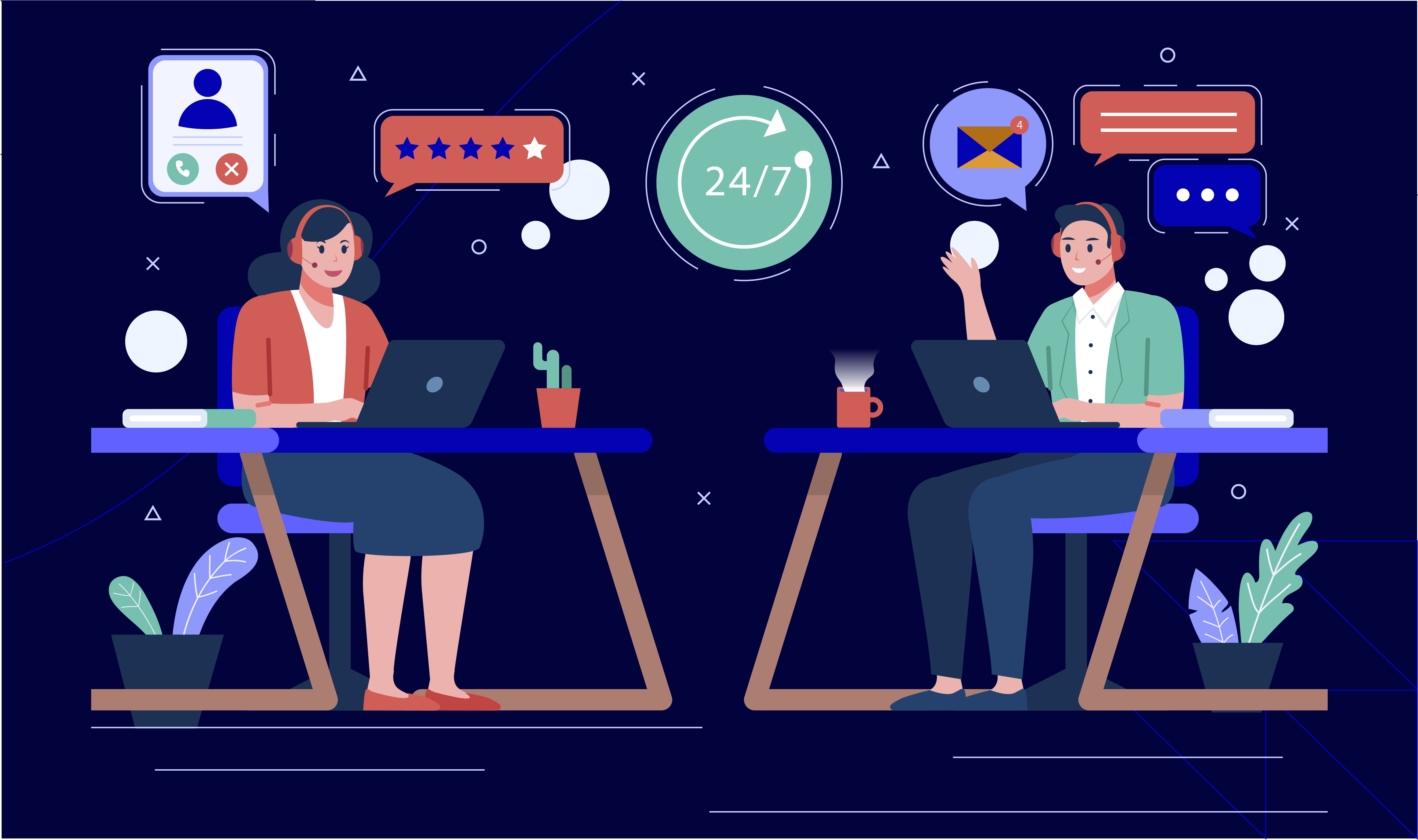
Skills are great—but strategy brings it all together. Here’s how to turn good intentions into consistent results.
1. Create a Unified Support Playbook
A unified support playbook helps your whole team stay on the same page—no matter who’s on shift, which channel a customer uses, or what kind of question comes in. What should go in it?
- Tone of voice support service
- Escalation paths
- Refund and return policies
- FAQ
Keep your playbook updated, make it easy to access, and involve your team in refining it. They’re the ones using it daily so they’ll know what’s working and what’s missing.
For distributed or hybrid teams, having a central playbook ensures brand consistency and faster onboarding which is crucial for D2C brands scaling across multiple time zones.
2. Invest in Training
Even your rockstar agents need to sharpen their skills now and then. Customers evolve, products change, and new channels pop up all the time. Ongoing training helps everyone stay confident, consistent, and cool under pressure.
Here’s what that can look like:
- Role-play sessions: Practice common customer scenarios—from simple questions to tough complaints. It helps build muscle memory (and empathy).
- Writing workshops: Teach your team how to write with clarity, warmth, and that just-right brand tone. Especially helpful for email and live chat!
- Soft skills refreshers: Empathy, patience, active listening—these matter just as much as knowing how to reset a password.
- Product updates and process changes: Keep your team in the loop. If something changes, make sure they know exactly how it affects customers.
Ongoing training programs directly relate with reduced churn and higher retention which are key metrics for CX leaders in growth-focused consumer brands.
3. Build an Easy-to-Use Knowledge Base
A well-built knowledge base is like your business’s 24/7 self-service assistant. Here’s how to make it actually useful:
- Make it searchable: No one wants to click through multiple menus. A strong search bar means faster answers.
- Structure it smartly: Use clear categories, tags, and navigation.
- Write like a human: Skip the jargon. Keep it short, clear, and friendly. Add screenshots or short videos when it helps.
- Keep it updated: Outdated info is worse than no info. Review and refresh regularly, especially after product updates or policy changes.
- Involve your support team: They know what customers ask most often. Use their input to build content that actually solves problems.
A robust knowledge base can reduce up to 40% of repetitive inquiries, freeing up teams for high-value interactions.
4. Personalise the Experience
One of the easiest ways to make your customer service more effective is to make it personal. It just means using the info you already have to make the interaction feel human. Studies show that 73% of customers expect brands to provide them with personalized service, so what you can do is to start with the basics:
- Use their name.
- Reference their past conversations.
- Mention what they purchased, viewed, or asked about.
These small touches build trust—and make your customer feel seen. Here’s where your CRM or helpdesk platform comes in handy. Tools now keep everything in one place: past tickets, preferences, order history, even tone of past interactions. When your agents have that context right in front of them, they can go straight to recommending better solutions, faster.
With modern CRM systems CX teams can easily personalize outreach. For example, Atidiv helps brands combine automation with human context to drive faster, warmer resolutions.
5. Collect and Act on Feedback
If you want truly effective customer service, feedback isn’t just a formality. It’s your roadmap. Start by making it easy for customers to share:
- Quick post-chat surveys
- Email follow-ups with a single rating scale
- Feedback forms on your help center
However, what you need to remember is not to just collect data, but to use it as well. Look for patterns:
- Are customers constantly confused about the same process? Time to simplify.
- Is one agent getting rave reviews? Shout them out—and see what others can learn from them.
- Getting low scores on weekends? Maybe it’s time to rethink weekend staffing or training.
High-performing CX teams build feedback loops across departments, connecting insights for measurable improvement.
The Role of Communication in Effective Customer Service
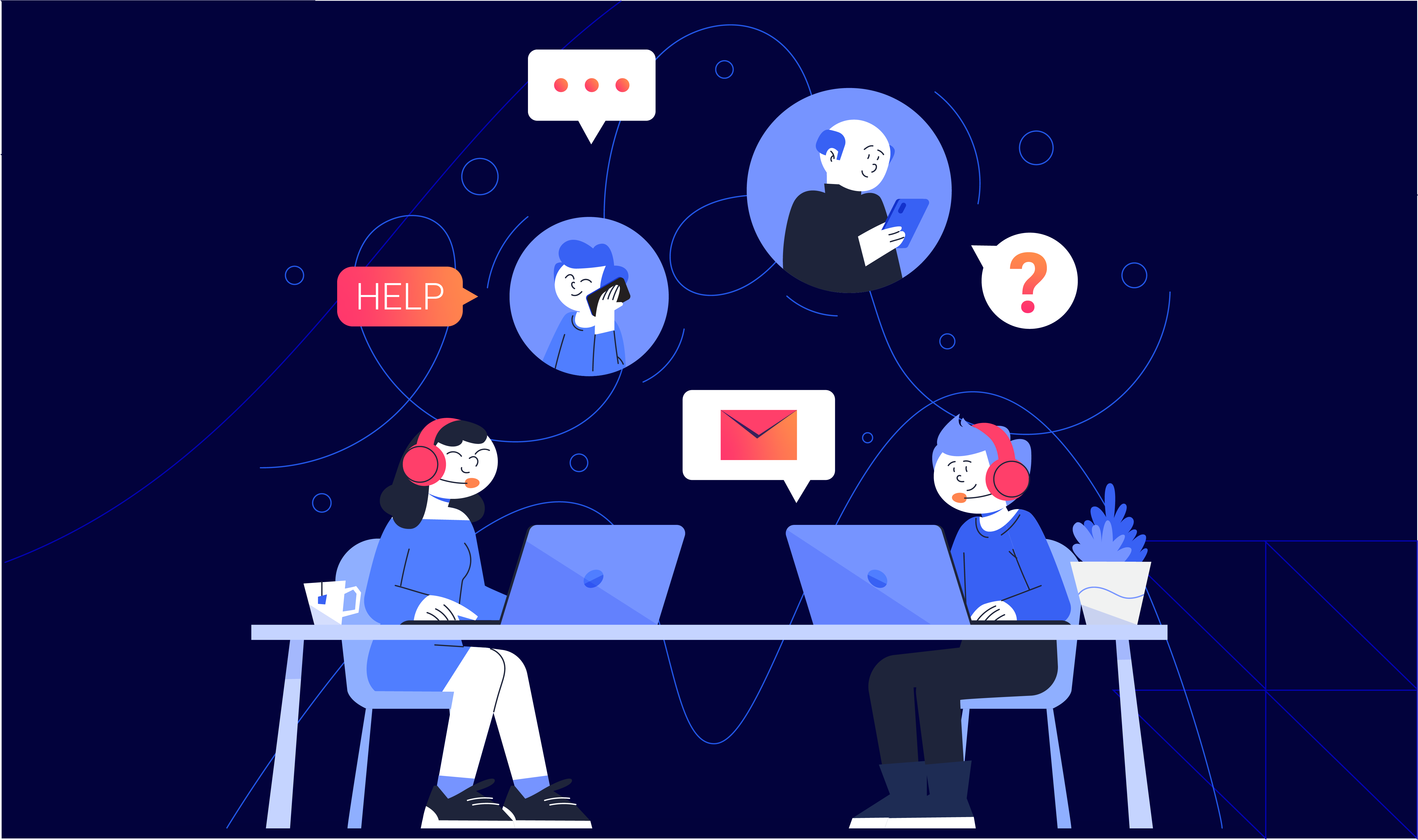
Effective communication in customer service isn’t about saying more. It’s about saying the right things, the right way, at the right time. Here’s how to make it count:
- Use simple, straightforward language: Your customer shouldn’t need a dictionary to understand what you’re saying. Whether it’s a refund process or a feature explanation, speak like a human.
- Confirm understanding: A quick check like, “Just to double-check, you’re trying to update your billing info, right?” saves everyone time. It shows you’re listening and keeps things on track.
- Mirror the customer’s tone: If they’re formal? Match it. If they’re using emojis and LOLs? Loosen up. This little shift builds connection, fast. You’re not mimicking—you’re meeting them where they are.
- Always give next steps: Never leave a customer hanging. Wrap up with clear direction, like:
- “You’ll get a confirmation email in the next 5 minutes.”
- “Here’s a link to track your order.”
- “Feel free to reply here if you need anything else.”
These small cues make a big difference in reducing confusion and building confidence. This clarity drives confidence which is essential for teams supporting global customers in real time.
Your Roadmap to Effective Support
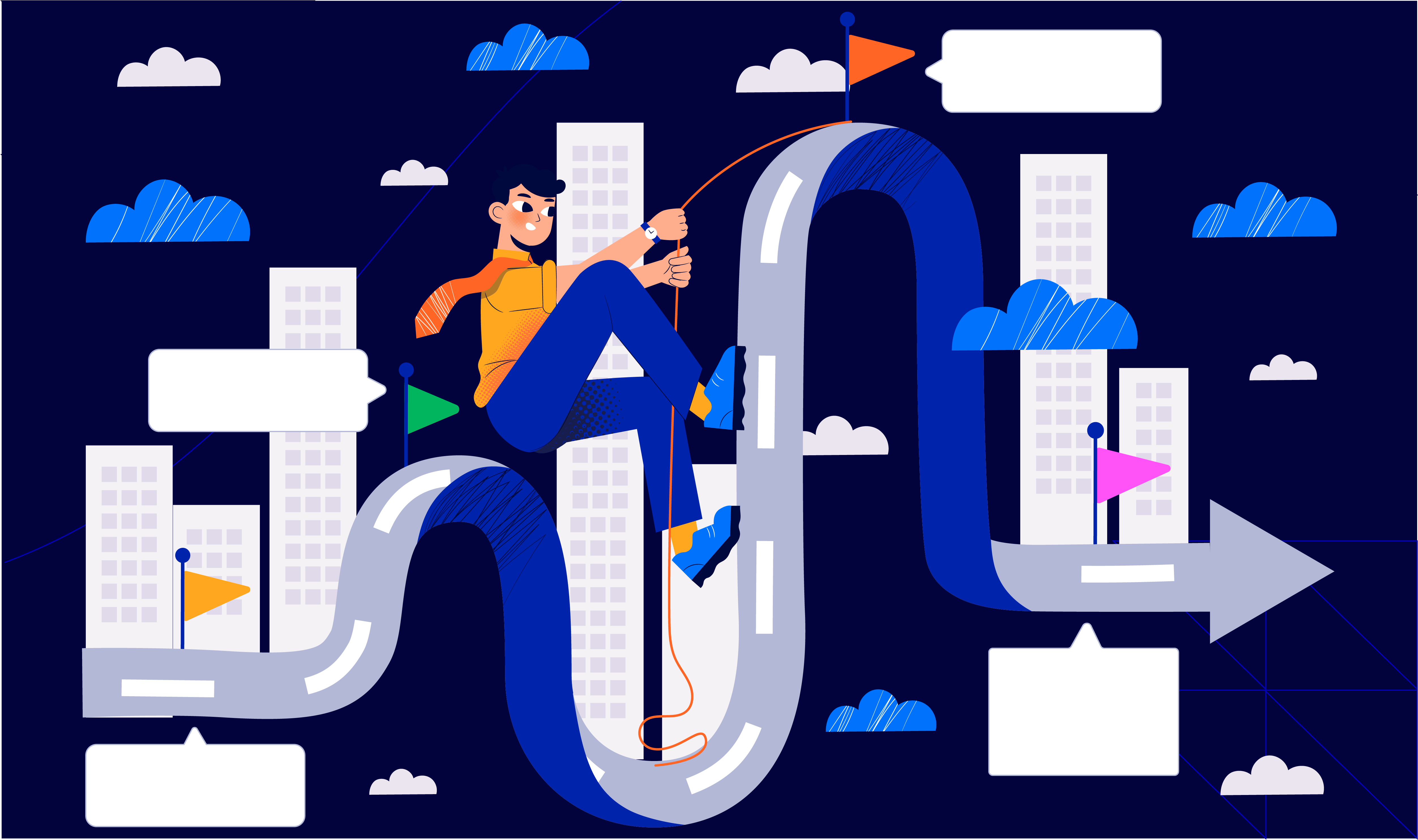
Effective customer service is about showing up with intention, listening like you mean it, and responding like there’s a real person on the other side. And here’s the good news: you don’t need to overhaul everything overnight to start seeing results.
Start with small shifts:
- Train your team – Not just on tools, but on tone, empathy, and how to handle tricky situations with confidence.
- Streamline your tools – If your agents are jumping between five platforms to answer one question…it’s time to simplify.
- Listen to your customers – They’ll tell you what’s working and what’s broken. Your job? Pay attention and act on it.
- Stay human – That’s the secret sauce. No bot can replace the feeling of being heard and helped by someone who actually cares.
At the end of the day, customer service is your front line, your brand voice, and often your biggest opportunity to turn everyday interactions into memorable ones.
Need help building a customer service strategy that works? That’s where we come in. At Atidiv, with customer experience specialists, we live and breathe support strategies. Whether you’re scaling fast, building from scratch, or just ready to level up, we’ve got you.
At Atidiv, we help consumer and SaaS brands in the U.S., U.K. & Australia build scalable CX operations that balance cost efficiency with 95%+ service quality. We help teams like yours:
- Train agents to deliver standout service
- Set up smart systems that save time
- Build scalable, customer-first support models
Let’s chat about how to take your customer service from good to unforgettable—and keep it there. Partner with Atidiv to scale smarter.
FAQs On Effective Customer Service
1. What does effective customer service mean?
It means providing fast, helpful, and human support that solves the issue and leaves the customer feeling respected and cared for.
2. How do I make customer service more effective in my business?
Train your team, use the right tools, build a clear support process, and focus on clear, empathetic communication with every interaction.
3. What are some essential effective customer service skills?
Active listening, clear communication, empathy, patience, and problem-solving are must-haves for any support professional.
4. Why is communication important in customer service?
Because it shapes the customer’s entire experience. Clear, kind, and confident communication builds trust and resolves issues faster.
5. What’s the difference between good and great customer service?
Good service fixes problems. Great service fixes problems while making the customer feel seen, supported, and loyal to your brand.
